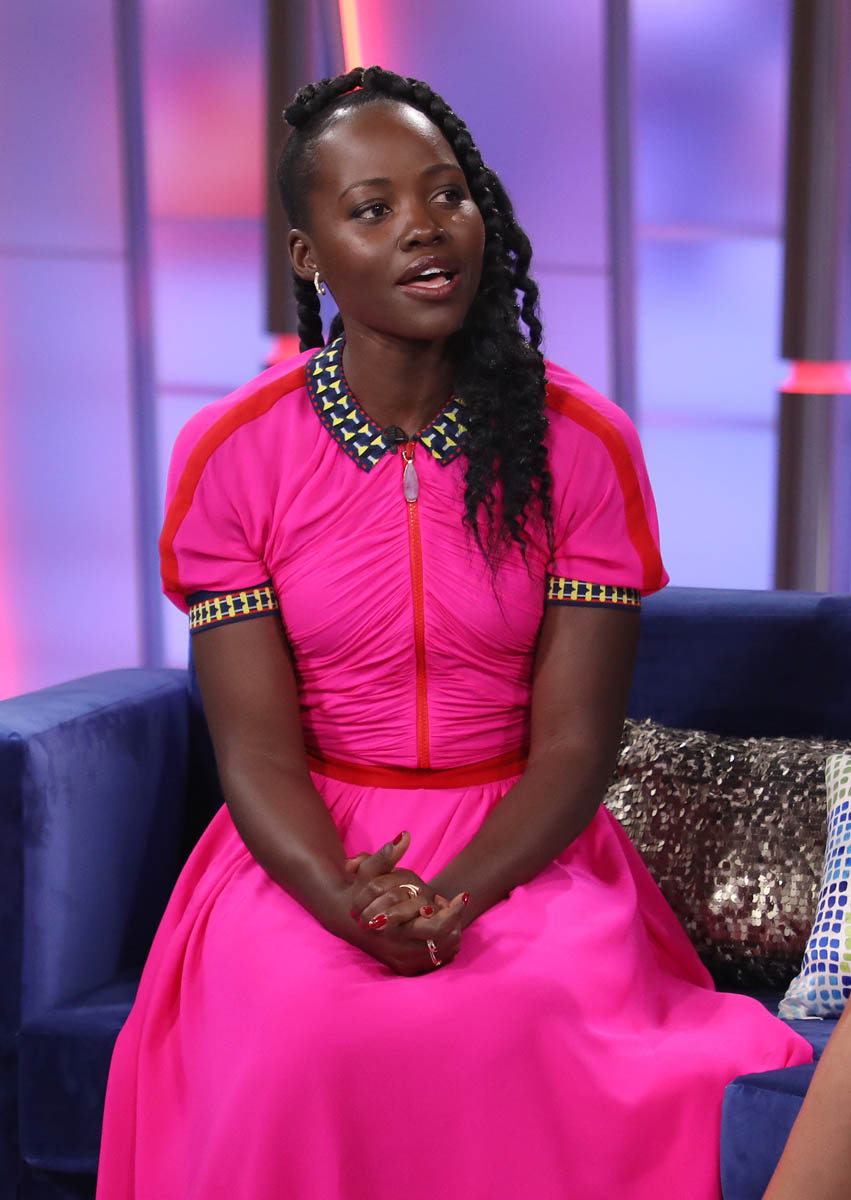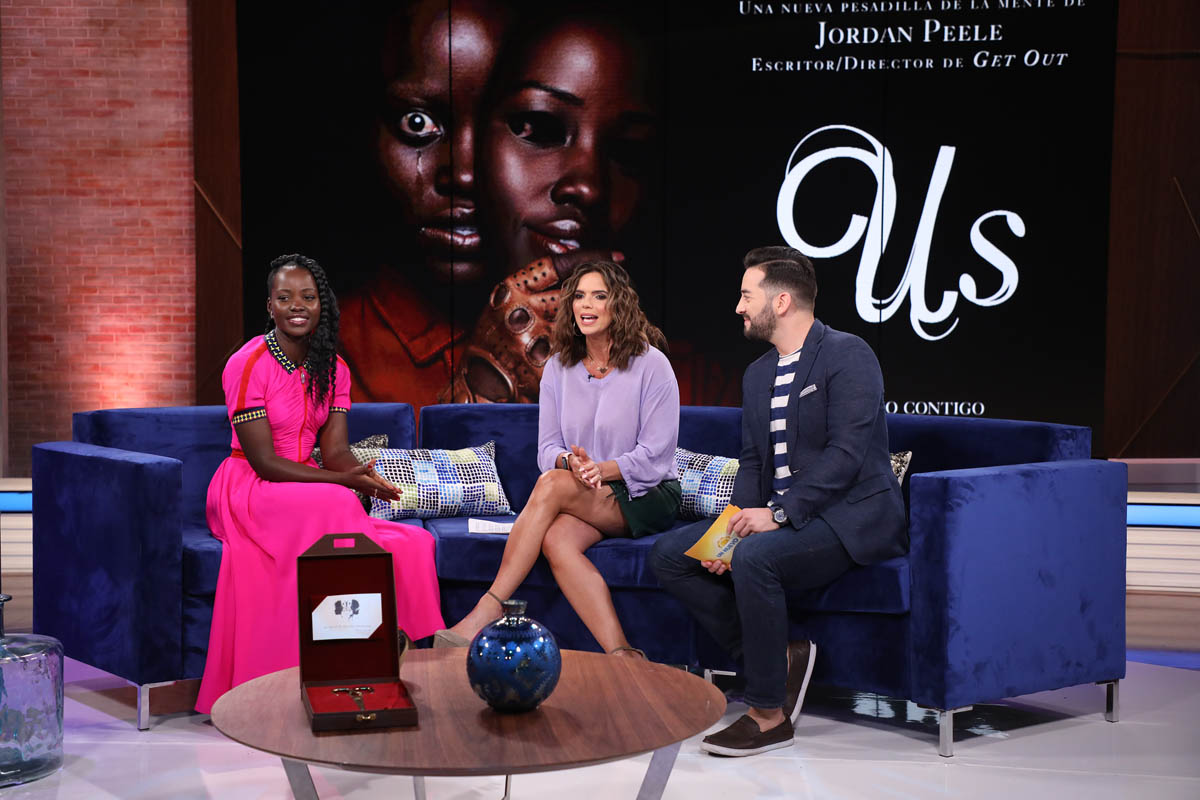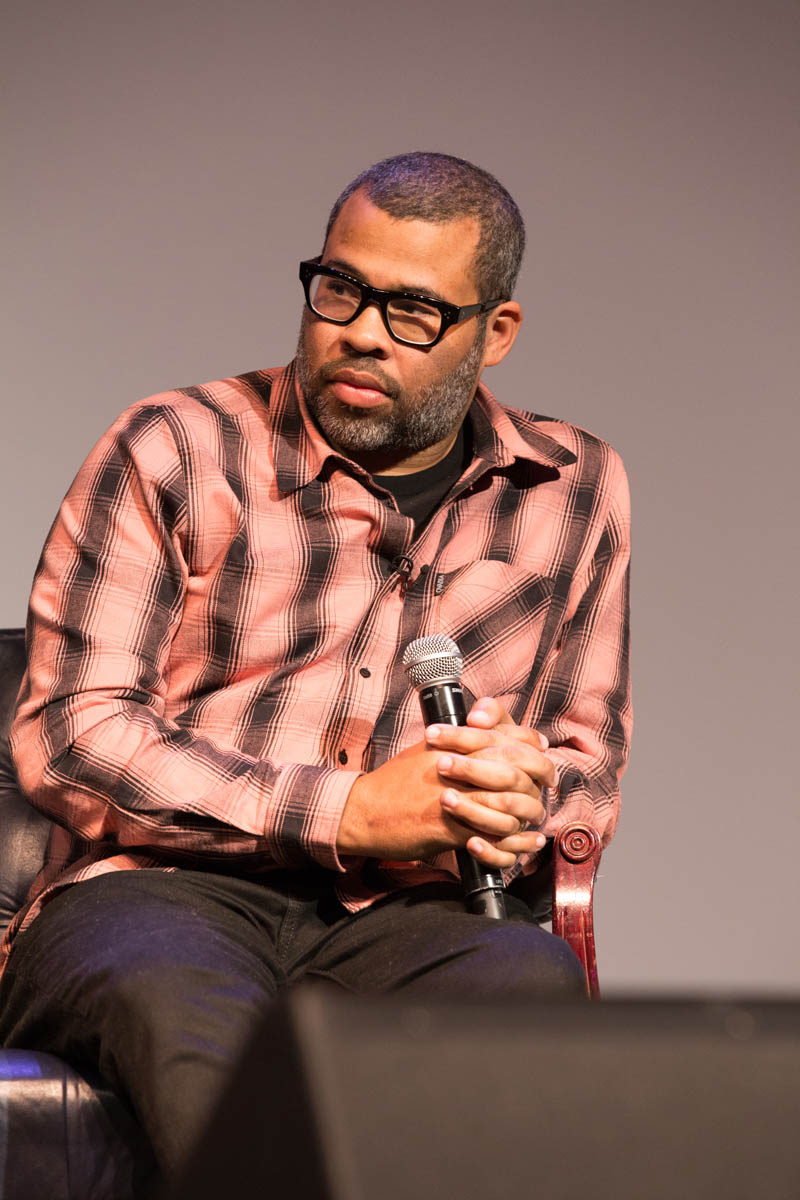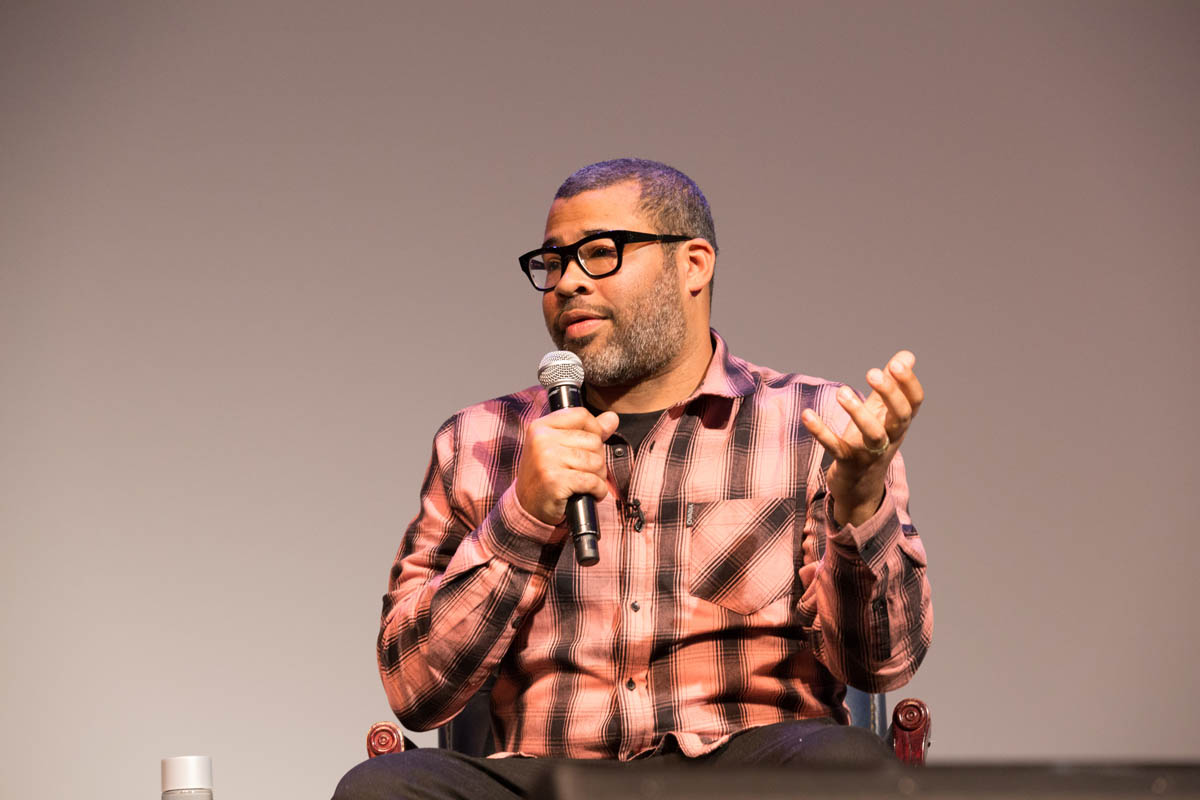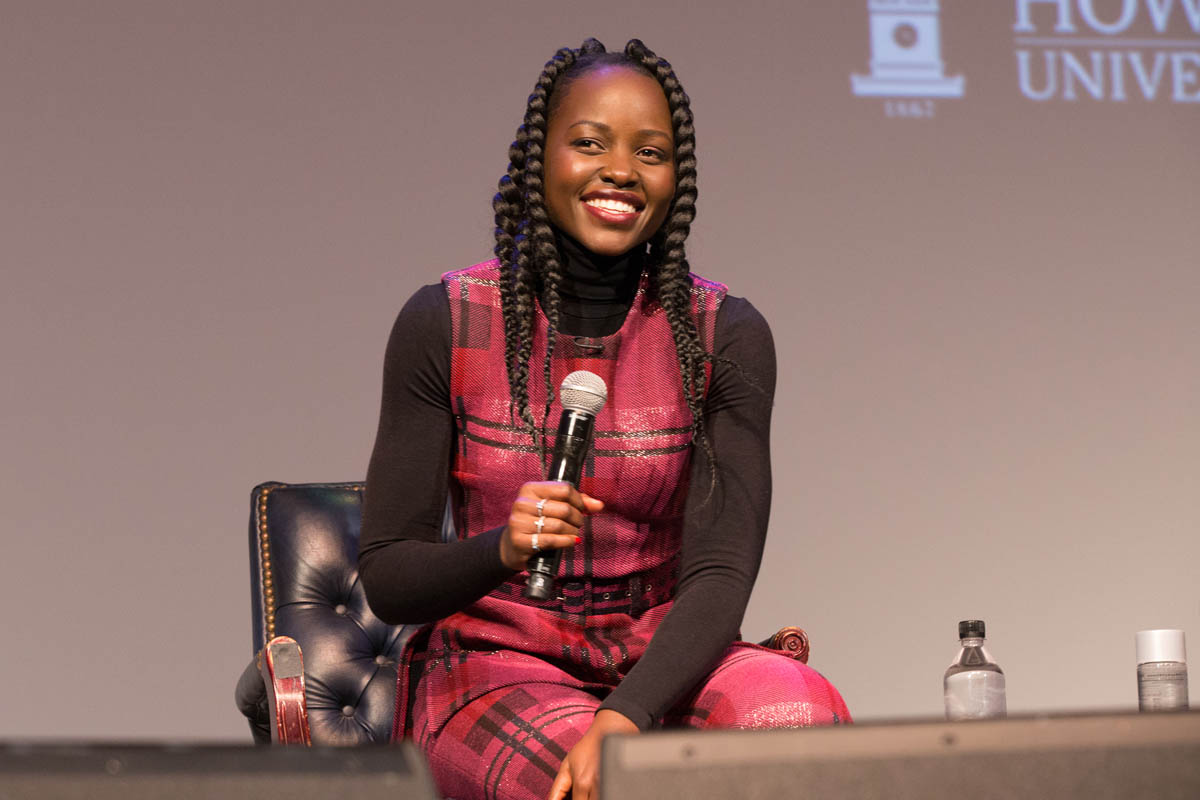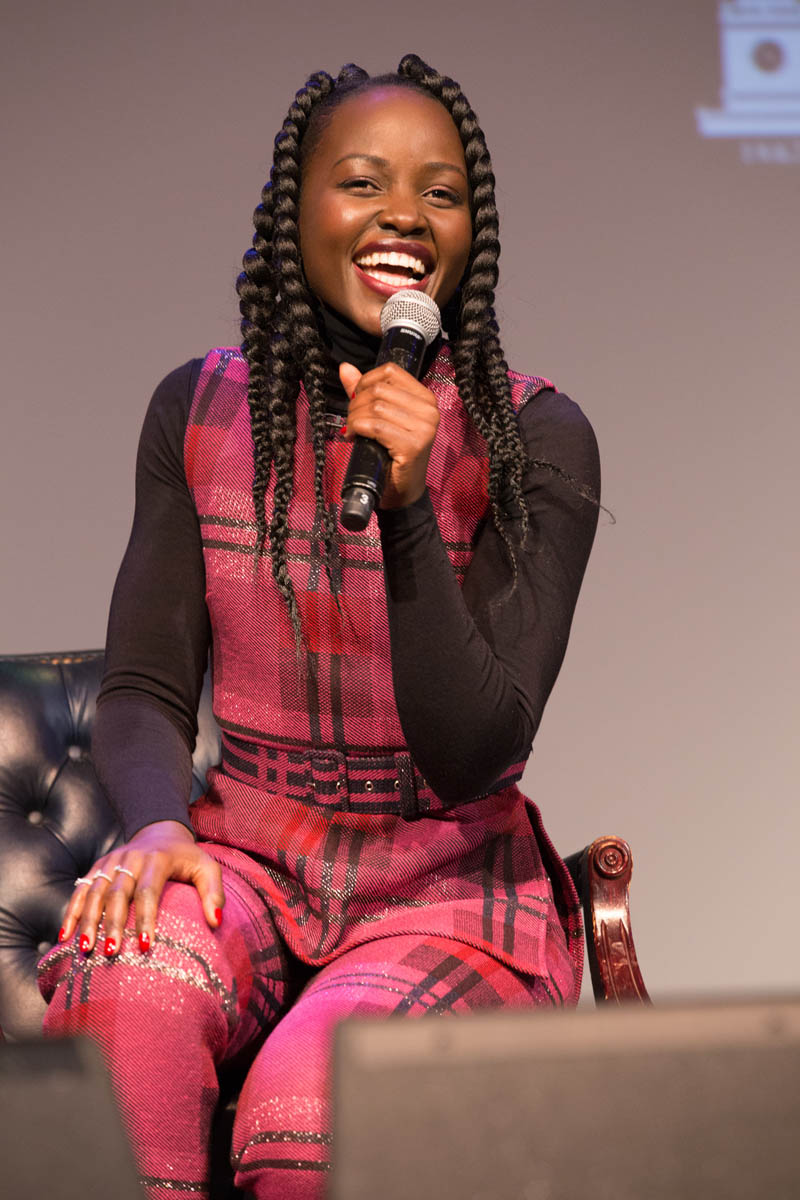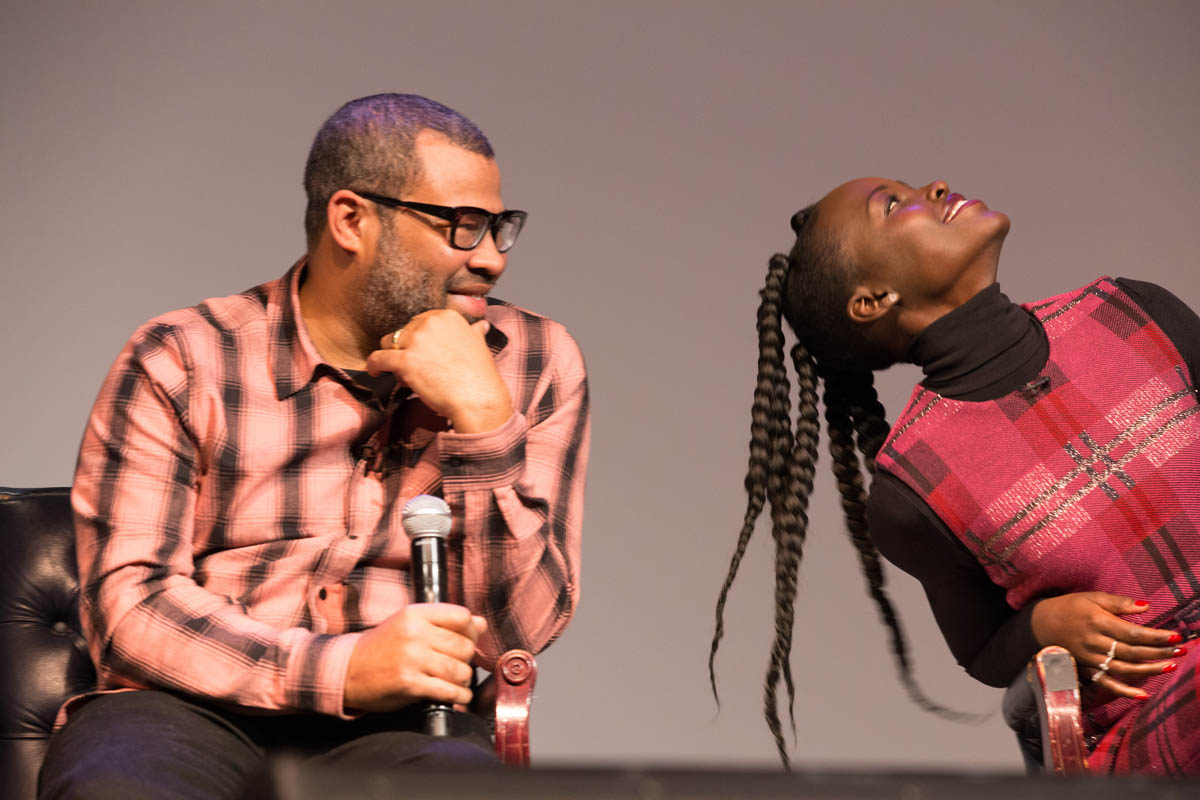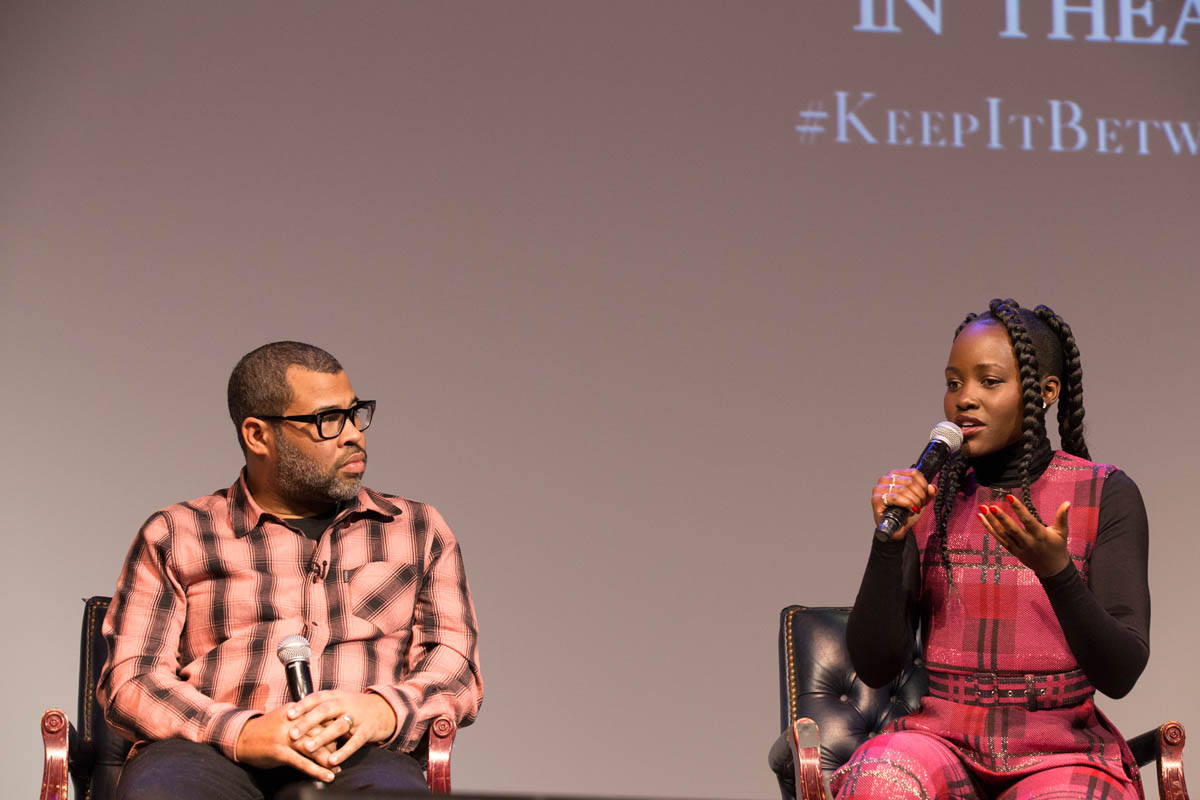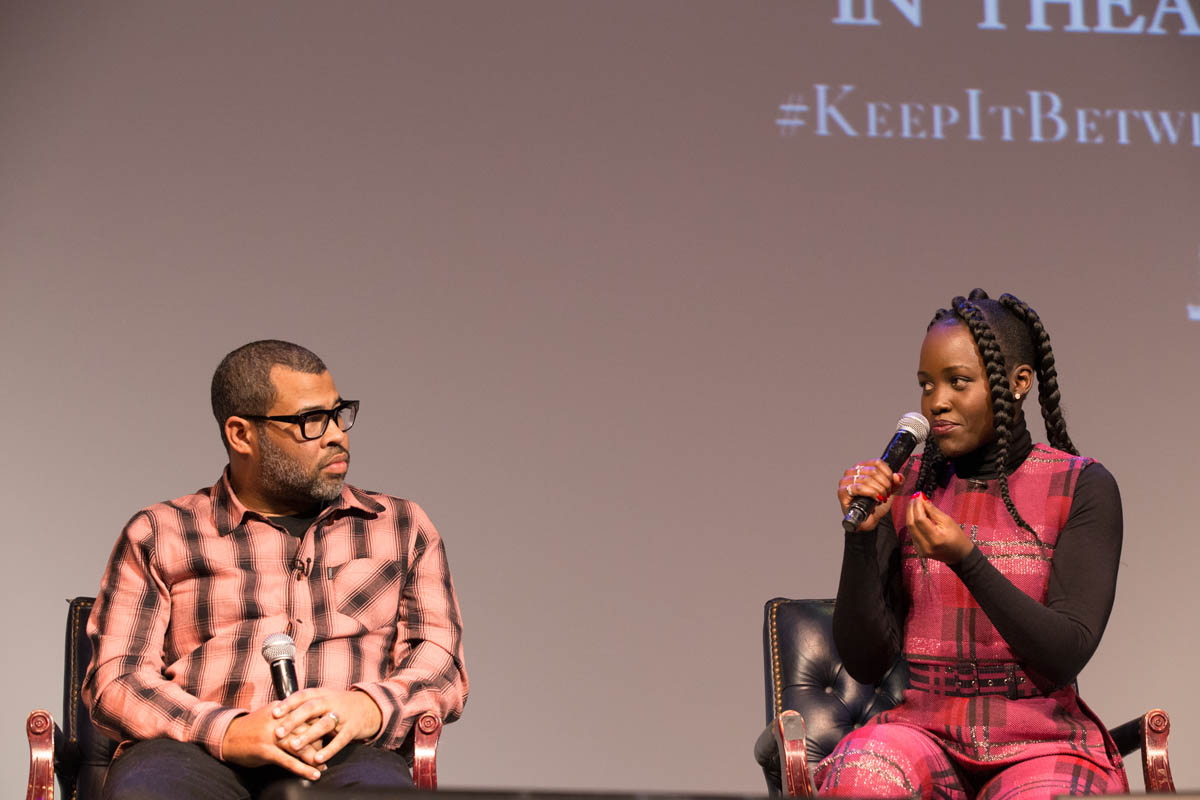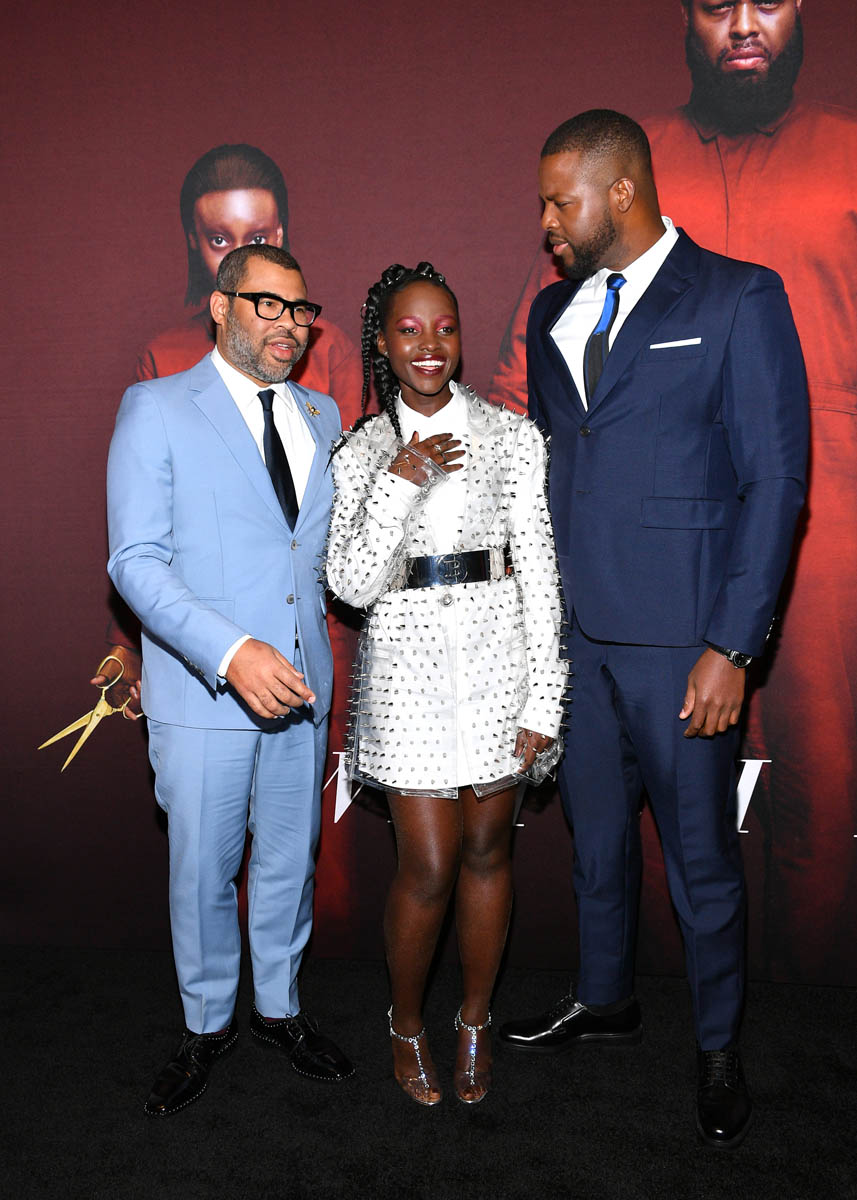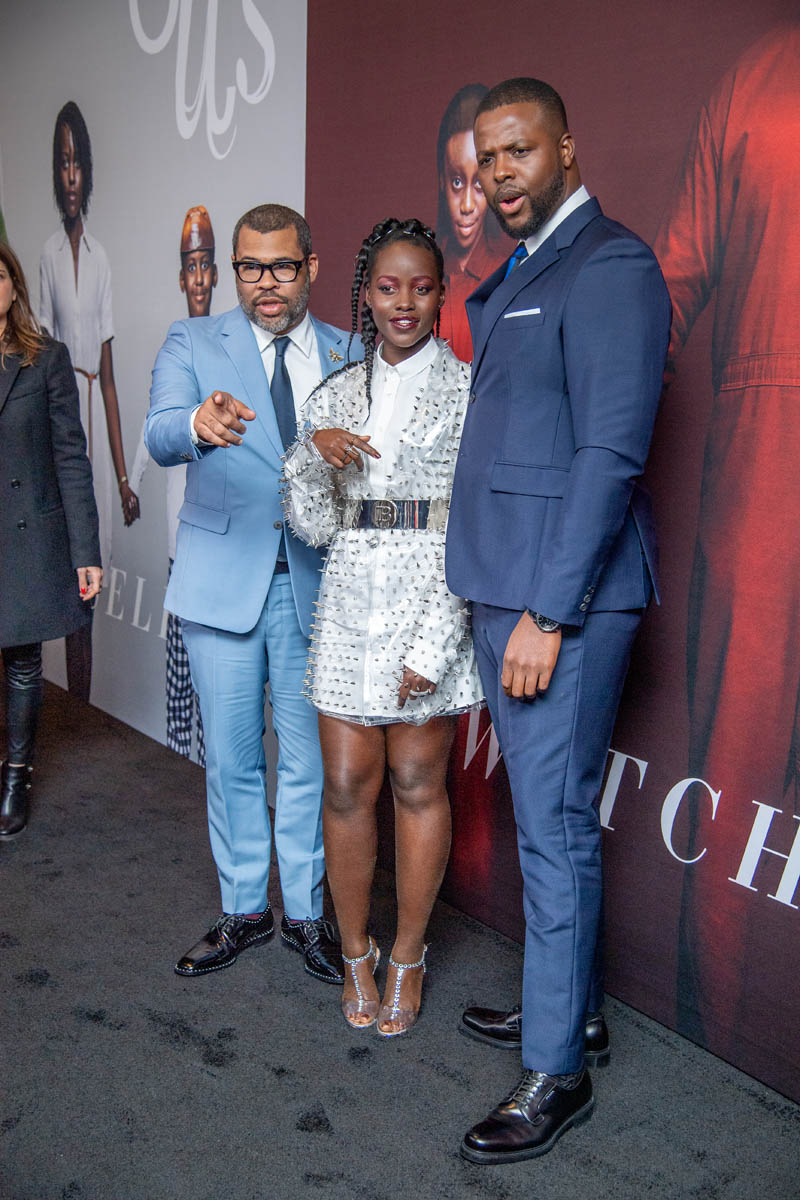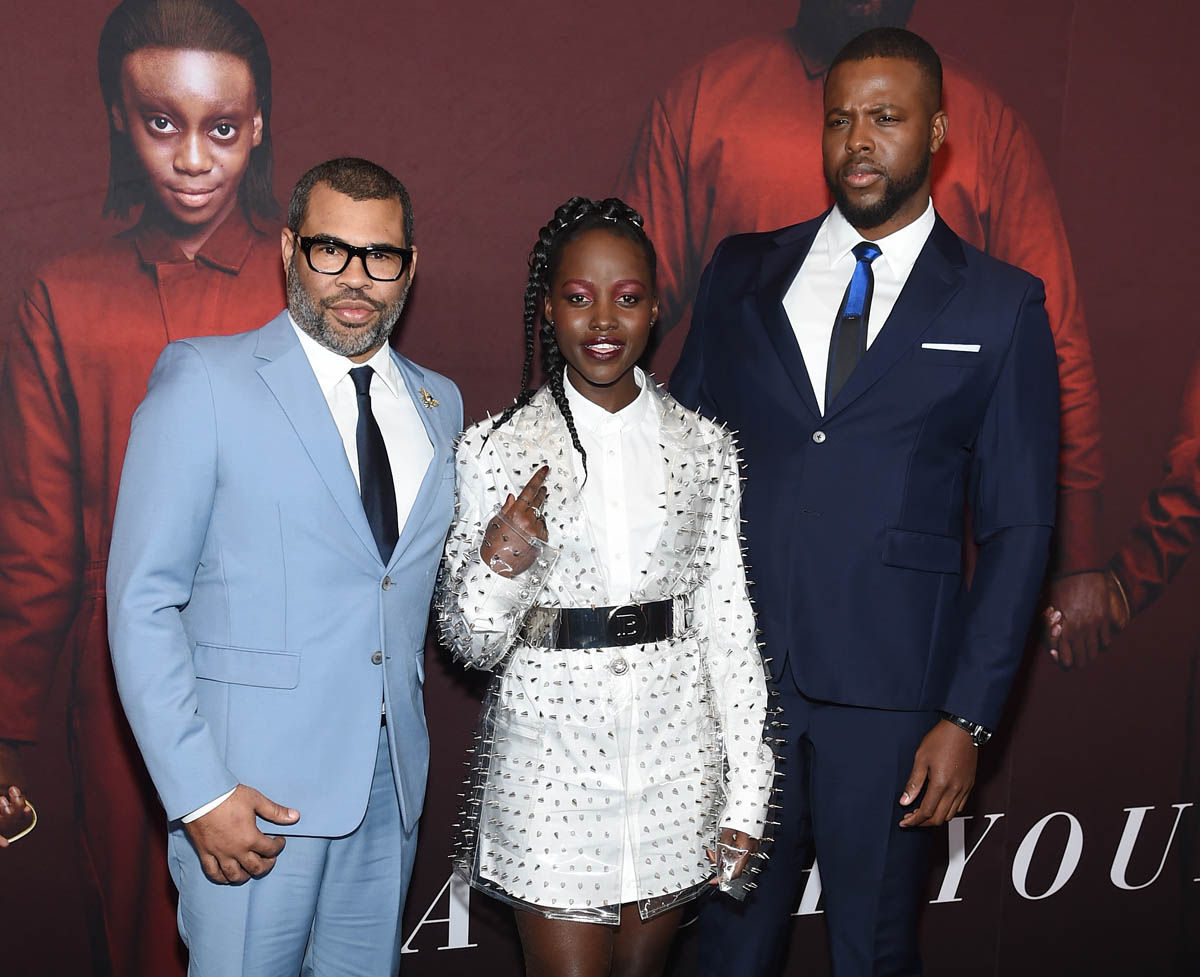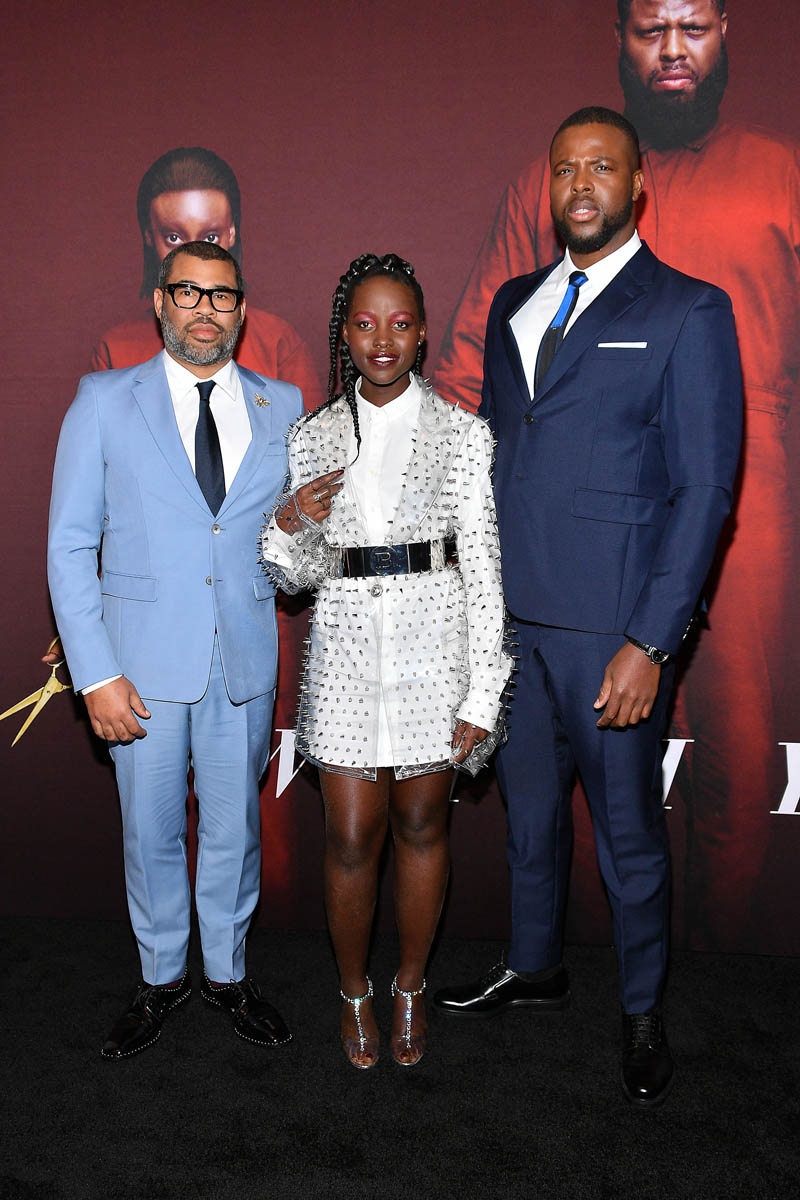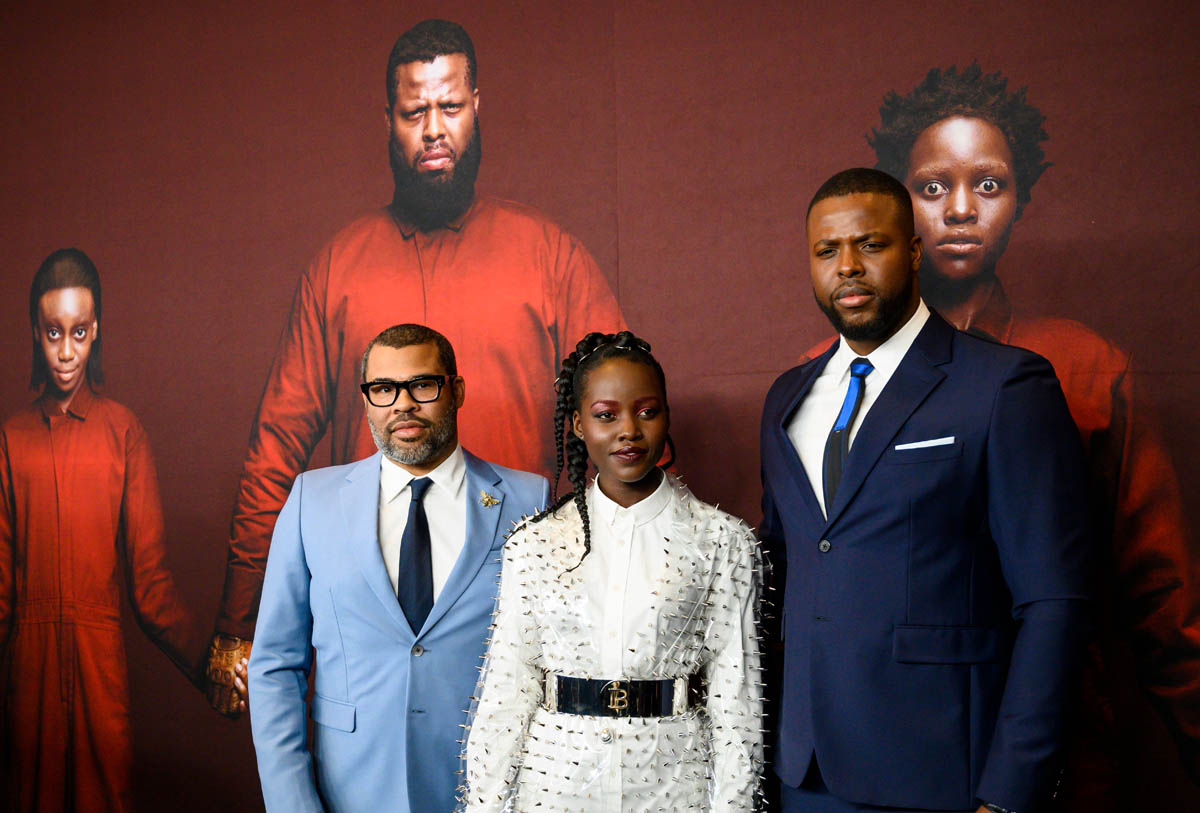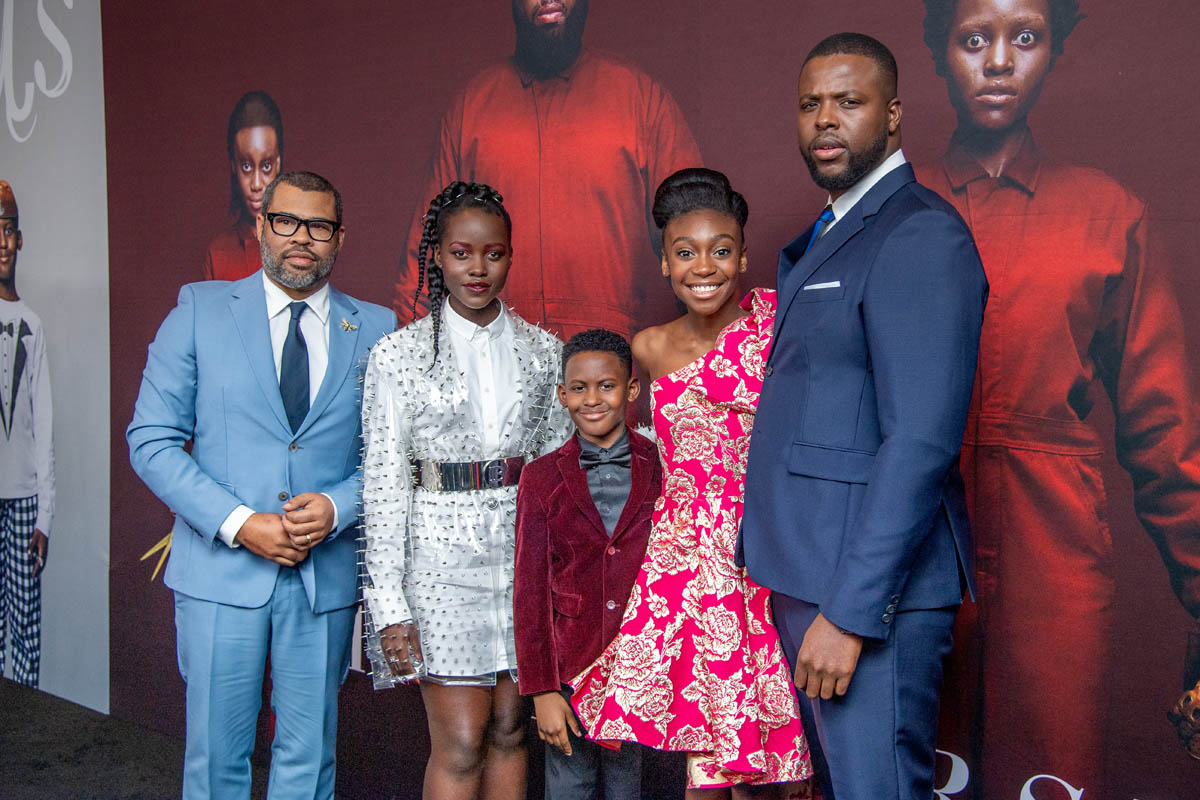Jordan Peele keeps it simple with Us


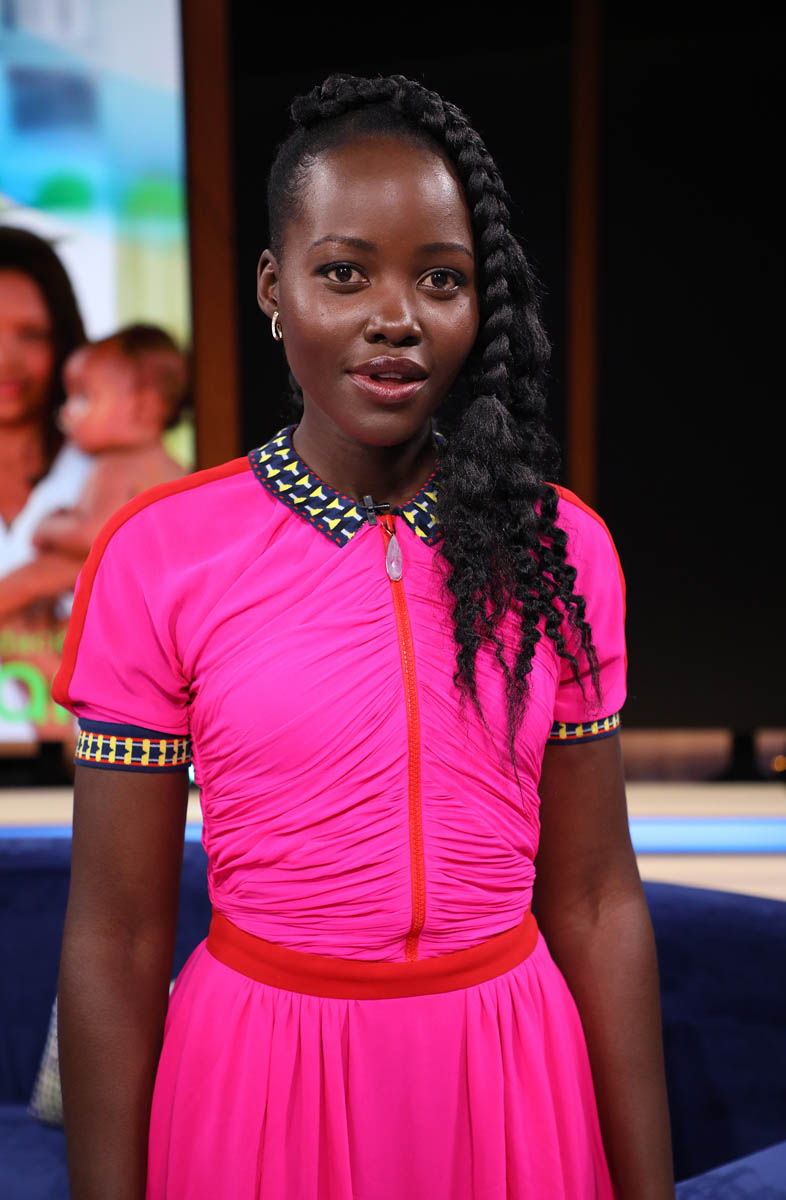
After a stunning debut like Get Out, anything less than equal success is bound to seem like a disappointment. Such is the case for Jordan Peele’s sophomore feature film, Us. Is it bad? Emphatically NO. But it’s not as deep or thematically grounded as Get Out, which is bound to feel like a disappointment to anyone looking for similar themes. Where Get Out was so thematically rich it inspired a debate over what genre it even belongs to, Us is solidly a horror movie in the home invasion tradition. That doesn’t mean it is totally devoid of meaning or symbolism, it just means you’re not going to find as developed a thematic playground as you do in Get Out.
Lupita Nyong’o gives a jaw-dropper of a performance as Adelaide, a mom trying to relax on her family beach vacation but who is haunted by a traumatic childhood event at the beach, and as Red, Adelaide’s doppelgänger who arrives with her own family to terrorize Adelaide. Everyone in Us is great, but this is Nyong’o’s show and she runs it, doing the most as both nervy Adelaide and threatening Red. Adelaide’s family seems pretty typical, with teen-ish daughter Zora (Shahadi Wright Joseph) tuned out on her phone, misfit son Jason (Evan Alex) wearing a mask everywhere he goes, and her husband, Gabe (Winston Duke, bringing Extreme Dad Energy), buying a boat no one else has interest in. Things quickly go down hill for Adelaide when Red and her dopple-family show up.
As if Get Out wasn’t proof enough, in Us Peele shows off his horror vocabulary, referencing everything from The Strangers to The Twilight Zone—in fact, Us gives a really solid taste of what Peele can do with his Twilight Zone reboot—and he puts together some really tense sequences set to chef’s-kiss-level musical cues. (The sequence in Elisabeth Moss’s beach house is especially good.) Like Get Out, humor is woven into Us, with the family choosing the weirdest moments to bicker over the most inconsequential things, just like actual families on stressful vacations tend to do. Us might not have the depth of Get Out, but the social observation is no less acute.
It’s just not entirely clear What It All Means. There are a couple pretty obvious interpretations stemming from the specific type of horror this is—here’s a clue—but there isn’t a whole lot more to it than that. If you go into Us expecting another Get Out-level treatise on the Ills Of Our Society, you’re going to be disappointed. Instead, go in expecting a very good horror movie that will stress you the f-ck out, and don’t expect college courses to spring up overnight to assess the true meaning of the symbolism. There really isn’t that much symbolism in Us that isn’t designed to reference the internal logic of the story itself. There are symbolic crumbs for sure, but they are aimed at internal meaning, not external.
Us will inevitably be compared to Get Out, but I don’t think it’s fair to punish what is a very well made and satisfying horror movie for not Making A Statement the way Get Out does. Not everything Jordan Peele does has to have three layers of meaning and make bold social observations. It’s okay if he just makes a damn good movie that is entertaining as hell and holds up as a modern take on a classic horror concept. Us is EXTREMELY well made, it’s clever and sly and scary and funny and weird. You probably can’t write a thesis paper on it, but you will have a good time watching it. Us is an incredibly effective horror movie, finely tuned to cause stress in the audience, with plenty of nerve-wracking moments and scares. Does it have to be more than that? Or is it enough just that Jordan Peele made a really, really good horror movie?

